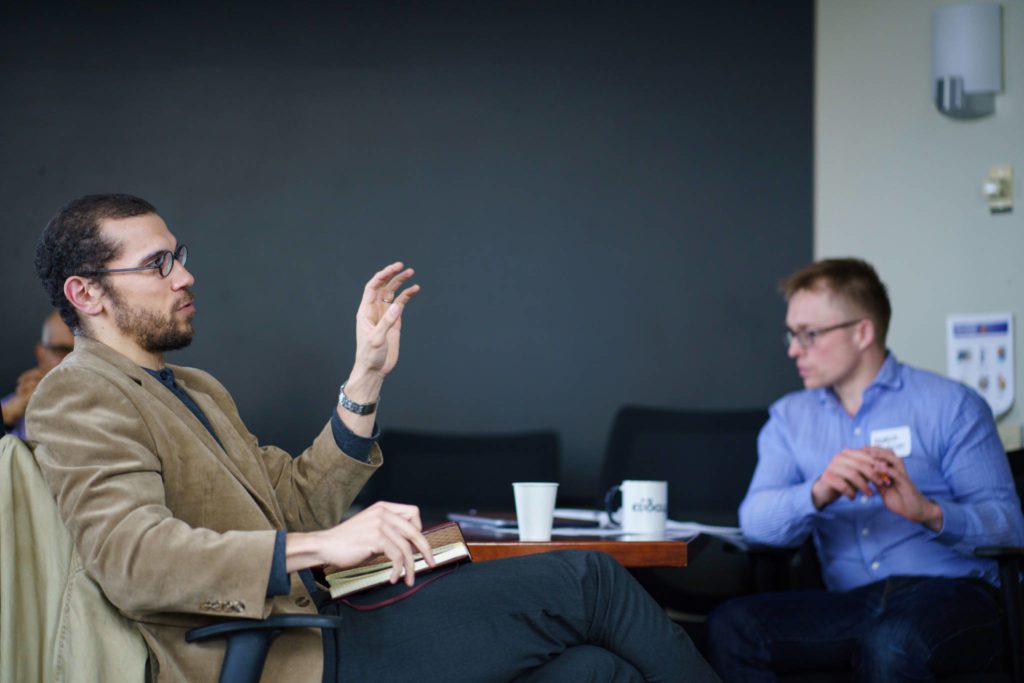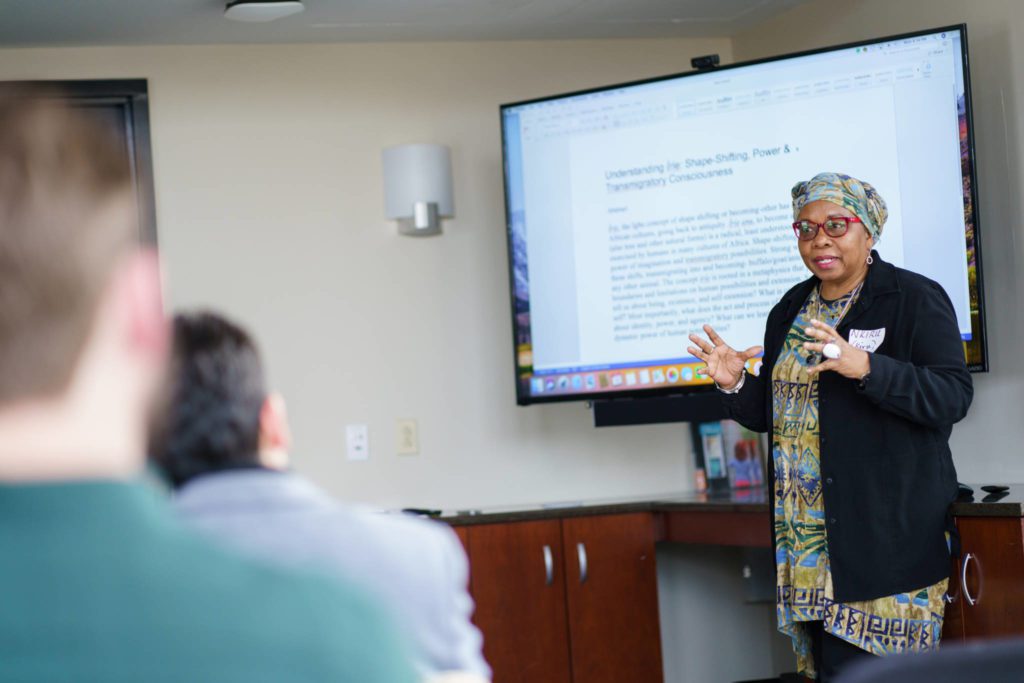Graduate Students in Princeton’s Philosophy and East Asian Studies Departments convened the first graduate student workshop under the aegis of the Humanities Council Global Initiative. The two-day conference, “Values in Antiquity,” met March 18-19. Over thirty early-career scholars from the U.S., Asia, and Europe attended to discuss, compare, and contrast pre-modern philosophy from different cultures across the world and time, without enforcing assumptions about what counts as “philosophy.”

Participants drew on their own expertise in one tradition to ask about or shed light on thought and practices from another and discussed the state of culturally comparative research and teaching today, and how it varies across different fields. Energetic exchange overflowed in a vigorous informal lunchtime discussion of teaching non-Western philosophy and comparative philosophy more generally.
“The conference was very successful,” Joseph Moore, a philosophy graduate student who helped organize the meeting said. “We had exactly the kinds of discussions I had hoped for in response to our presentations: participants would draw on their own expertise in one tradition to ask about or shed light on thought and practices from another.” He also stressed participants reflected together on the situation of comparative research and teaching across a variety of fields.

Presentations exemplified the expansive project of the Comparative Antiquity Initiative. With a focus on comparative argumentation, presenters explored the following topics:
- The social construction of identity through social roles and rituals in both Confucianism and Maya thought
- The role of the family in moral education according to Confucius and Aristotle
- Various unexpected arguments against harming animals from Greek Neo-Platonist, Islamic, Jain, and Buddhist philosophy
- The metaphysical implications of the shape-shifting practices and beliefs of the Igbo and other peoples of West Africa
- Resources in Christian and Islamic political theology for the political accountability necessary for republican freedom
- The universal wariness of female beauty in Chinese legend, juxtaposed with the more complicated Greek treatment of the figure of Helen
- The social realization of practical wisdom in Aztec philosophy, contrasted with the individualism of Aristotle
- Gaṅgeśa Upādhyāya’s multi-step theory of motivation and action in the Nyāya tradition of Indian philosophy
Princeton’s Comparative Antiquity Initiative is a multi-year project that embraces faculty and student efforts on the University’s campus to bring together scholarship and teaching on the pre-1000 world that is extensive chronologically and geographically and inclusive in disciplinary participation and methodology. The Initiative is in its first year in 2018-2019.















